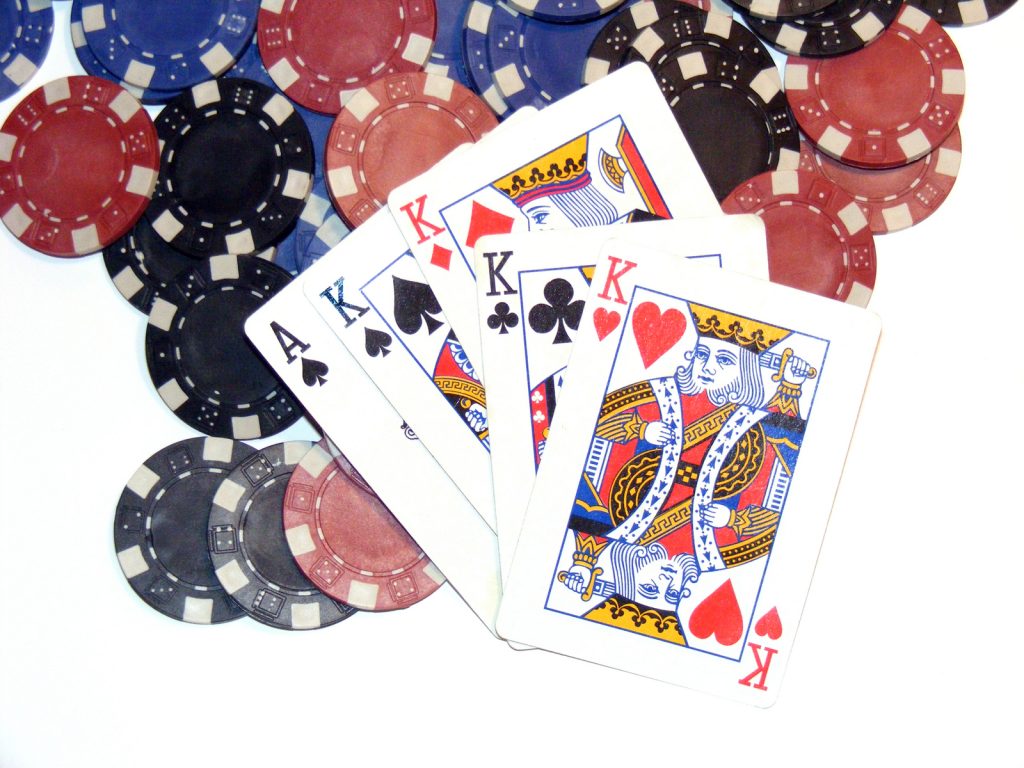I have been playing poker with friends for years and it is great fun especially when the beer is flowing but what a lot of people are doing now is playing to make a little bit of extra money and there are a lot of people out there playing poker for a a sum of money that is not to be sniffed at.

However what gets lost with a lot of poker players is that poker is just like any other bet and that it is a game of odds and if you have any odds on your side you will win in the long run.
There is quite a difference playing a game like blackjack against a casino , and playing poker against fellow players, and the main difference is the house edge or should i say the profit margin casinos write into their rules. In poker theres isnt one. This is a game of skill players against players and the only edge is the one that a good player has over a not so good player.
As you a;; know, the idea of poker is to win all the money staked on the game, (the pot,) by holding the best hand of those players still in at the finish.
Hands are ranked in order of precedence. But what are your real chances of being dealt any particular hand? Here they are, starting at the best and ending with the weakest. Alongside each hand is the true chance of it being dealt from a full pack.
Straight Flush – 66,000/1
Fours – 4,000/1
Full house – 700/1
Flush – 500/1
Straight – 255/1
Three of a kind – 45/1
Two pairs – 20/1
One pair – 11/8
No Pair – evens
Winning at poker is all about identifying value betting opportunities and taking them. In a football ber we compare our opinion of the teams chances with the bookmakers odds and decide whether there is any value in backing them. In poker we weigh up the chance our hand has of winning, or of our improving it sufficiently to make it a winner, against the reward offered by the pot.
Now a bookmaker will tell you what his odds are, but in poker you have to work them out for yourself, and it’s the ability to quickly understand the betting realities of the game that separates the winning poker player from the loser.
Winners And Losers
Most people who lose at poker do so because they take wrong decisions very early in the game. They then add to their error by persevering far too long with poor hands, throwing good money after bad, and in the process, filling the pot with big profits for the other players to take advantage from.
Unsuccessful players usually have only a vague idea of the odds they are facing, and tend to regard poker as a game of total chance.
Successful players work teh odds. There is no bookmakers; “overround” to contend with in this game, and shrewd betters take advantage by installing their own “edge”. They accomplish this by betting only when the percentages are in their favour.
Long term winners never make a bet that isn’t justified by the probabilities of their hand, and never contribute a penny to the pot that they don’t have to.
Here are some interesting figures, the real odds of improving your hand when you decide ti take more cards.
If you hold;
One Pair – and take 3 cards, the odds against improving your hand are 5/2
One Pair – and take two cards, the odds against improving your hand are 3/1
Two Pair – and take 1 card, the odds against improving your hand are 11/1
3 of Kind – and take 1 card, the odds of improving your hand are 11/1
So before you decide to accept more cards – ask yourself does the likely pot justify my “odds against” bet?
Three Things Every Poker Player Should know.
1. In the majority of games the best hand at the beginning is the best hand at the end too. You can improve your hand, but your opponents can improve theirs as well.
2. So it is important to make your first decision the right one, and don’t put money into the pot unless you have a real chance of winning.
3. It is 11/8 against you being dealt even a lowly pair, and you are more likely to get nothing at all. So in a game against one other player, remember that your pair will most likely win it, and make your bets accordingly.

Leave a Reply